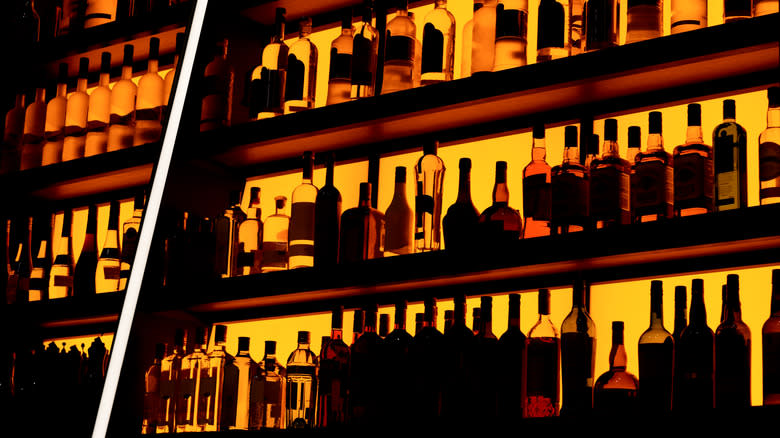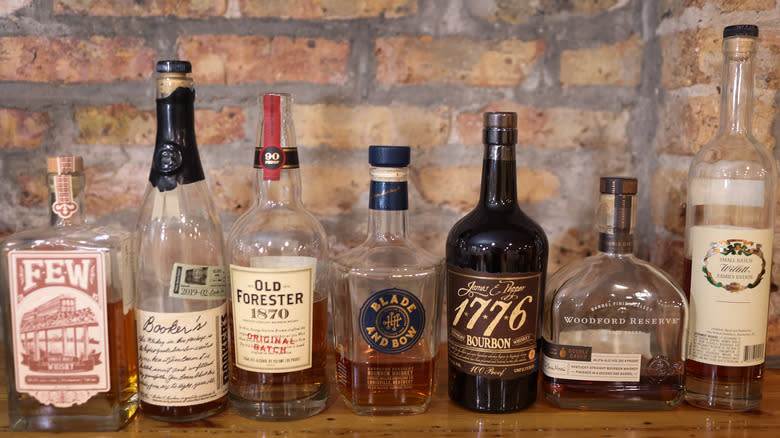Why The Amount Of Bourbon Left In The Bottle Matters For Storage

If you're a casual whiskey drinker who buys one bottle at a time and finishes it before getting another, storage likely isn't front and center on your mind. But, as soon as you start collecting bottles of rare and expensive bourbons that you only bring out on special occasions, you need to be thinking about a lot more than what shelf to put the bottle on. An often overlooked aspect of storage is how full your bottle of Pappy Van Winkle is as it patiently sits there on the shelf.
The moment you crack open a new bottle of bourbon, you are setting in motion chemical reactions with the air that are affecting the quality of your spirit. Experienced whiskey collectors attribute the changes to oxidation. Thankfully, oxidation takes a long time to make a noticeable difference, which is why you don't need to worry about it unless you think the bottle will sit on the shelf for longer than a year.
Common wisdom holds that once a bottle has only ? of its contents left, it's time to invite some friends over and polish it off. The rate at which your bourbon's flavors are going to deteriorate rises substantially at this point since there is a lot more air in the bottle for the bourbon to interact with, even with the lid on. This isn't an exact science, and it seems that some bourbons are more affected than others, but tradition and observation hold it to be true.
Read more: The 27 Best Bourbon Brands, Ranked
More Than Oxidation

Let's take a closer look at the chemical processes going on. Oxidation is when the ethanol (read, alcohol) in bourbon reacts with the oxygen in the air, which impacts the flavor. Although oxidation isn't the only process happening, many people will simply say "oxidation" as a catch-all term for the chemical processes that alter the flavor of the whiskey when it's in contact with air.
The other main process happening is dissipation, which is when aromatic compounds in the bourbon evaporate into the air and are lost. Given enough time, dissipation can have a serious impact on how aromatic your bourbon is, which has an enormous impact on flavor since half of the bourbon's taste is its smell. If your bourbon loses its aromatics and smells bland and dead, it won't matter how good it tastes, the overall flavor will have lost something important.
It should be noted that there are bourbon collectors out there who don't worry about oxidation or dissipation and seem perfectly satisfied with what comes out of their bottles. But, for every collector who ignores how much bourbon is left in the bottle, there's at least one who takes it seriously. Ultimately, it's up to you to decide how important it is for you. It may take a favorite bottle going bad to convince you not to risk it.
Read the original article on Tasting Table.
